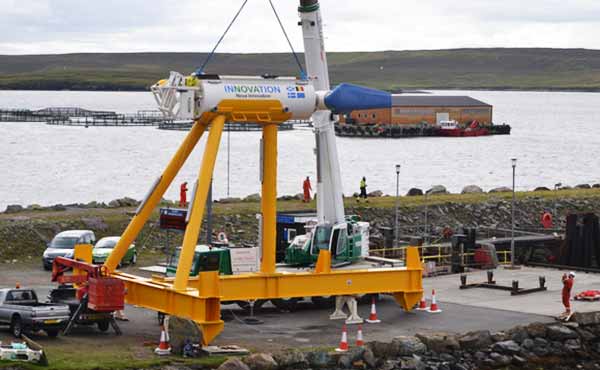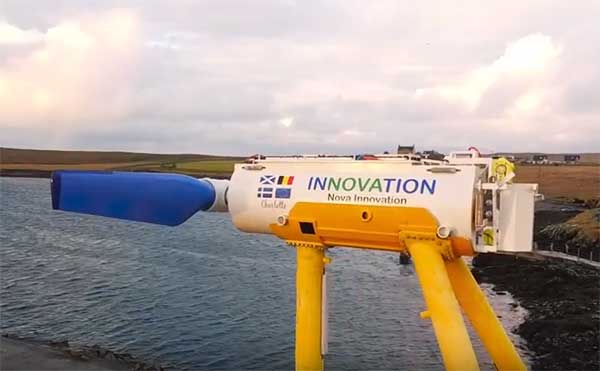
For years, one of the worst parts of human consumption has come from our desire and our need for more energy. It has become the most common part of the way that we live as a species: everything is powered. However, the development of renewable energy sources – including tidal energy – has become commonplace in many ways.
It’s for this reason that many people are backing the ELEMENT project, one of the most ambitious tidal energy projects, for success. Interestingly, it claims to be able to slash the lifetime cost of energy by as much as 17%. Like all good projects, though, it needs backing and it has to be supported to ensure that it can do the job that was intended.
Being led by Scottish-based Nova Innovation, this is going to help cut energy costs massively over a lifetime. It’s been given a backing of €5m and will start in 2019. It will start to use AI technology that is used in the wind energy industry and put that into tidal turbines. This would then adapt and adjust to the needs of the ride and improve performance massively.
The aim, then, is to make sure that the wind sector and the tidal sector can work hand-in-hand in terms of making sustainable energy. By allowing the turbines to be able to adapt to the wildly unique conditions of the tides, this could be essential in improving energy usage and minimising the long-term cost of our consumption.

A solution to make tidal energy even better?
Speaking about the project was Nova Innovation CEO Simon Forrest. Forrest spoke about the importance of the project, saying to Energy Live News: “Reliable tidal energy generation is now a reality. It is no longer a matter of ‘if’ but ‘when’ the technology becomes mainstream. The sector has taken great strides forward in recent years and our drive is now to reduce cost to compete with conventional generation.
“Fortunately for our industry, many cost reduction techniques have already been demonstrated in established renewable technologies, such as offshore wind. By capturing this knowledge, we can reduce the costs of tidal energy more quickly by piggybacking on their technological advances.”
As part of the EU’s Horizon 2020 project, this could be a major part of innovation in the clean energy sector. As one of our most important innovations and improvements that we can make, projects like this could be essential to stopping the impact of man-made climate change being quite so extensive. The more renewables that we can use, the better.